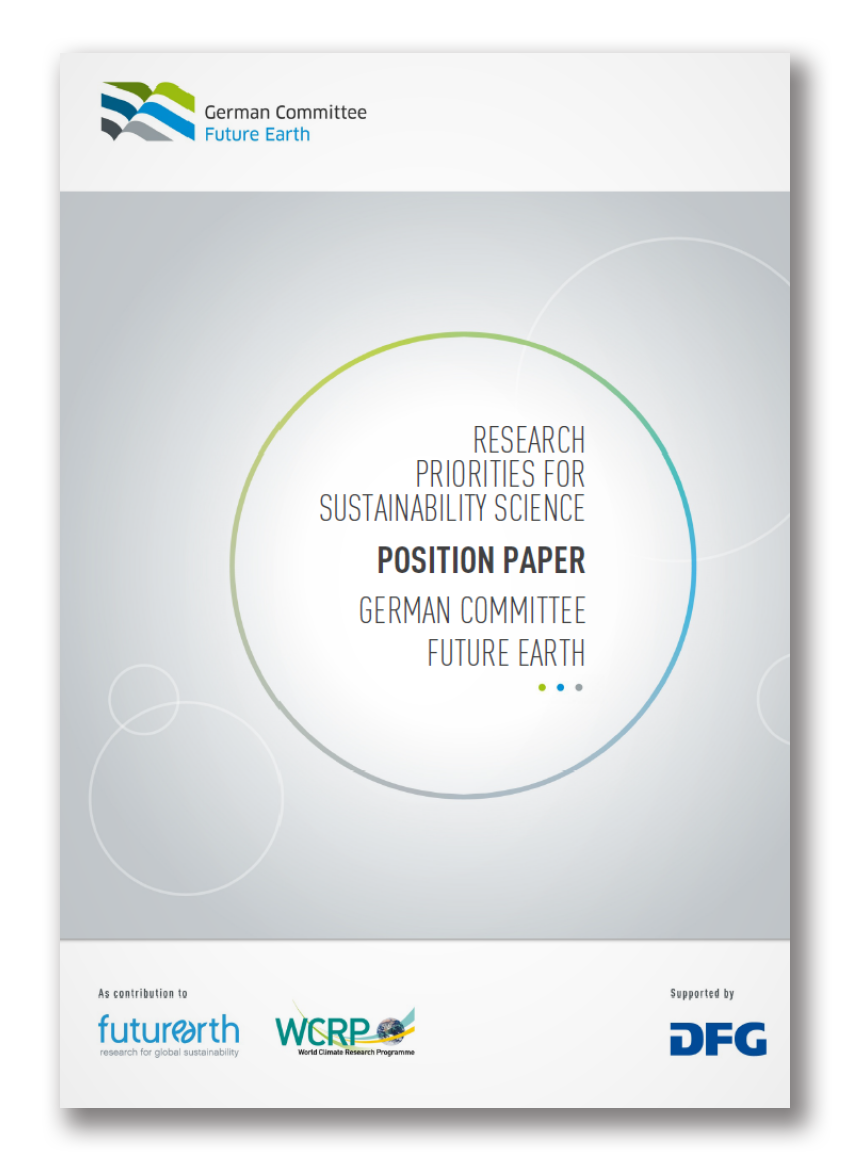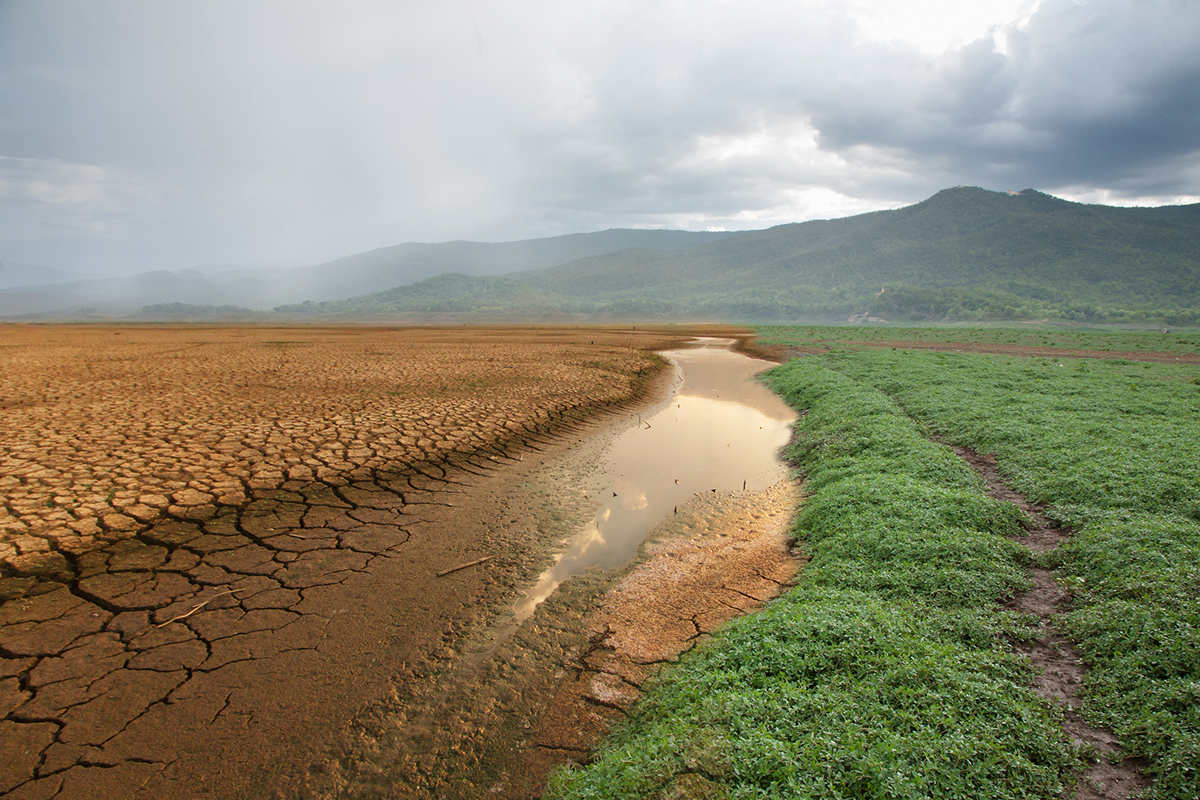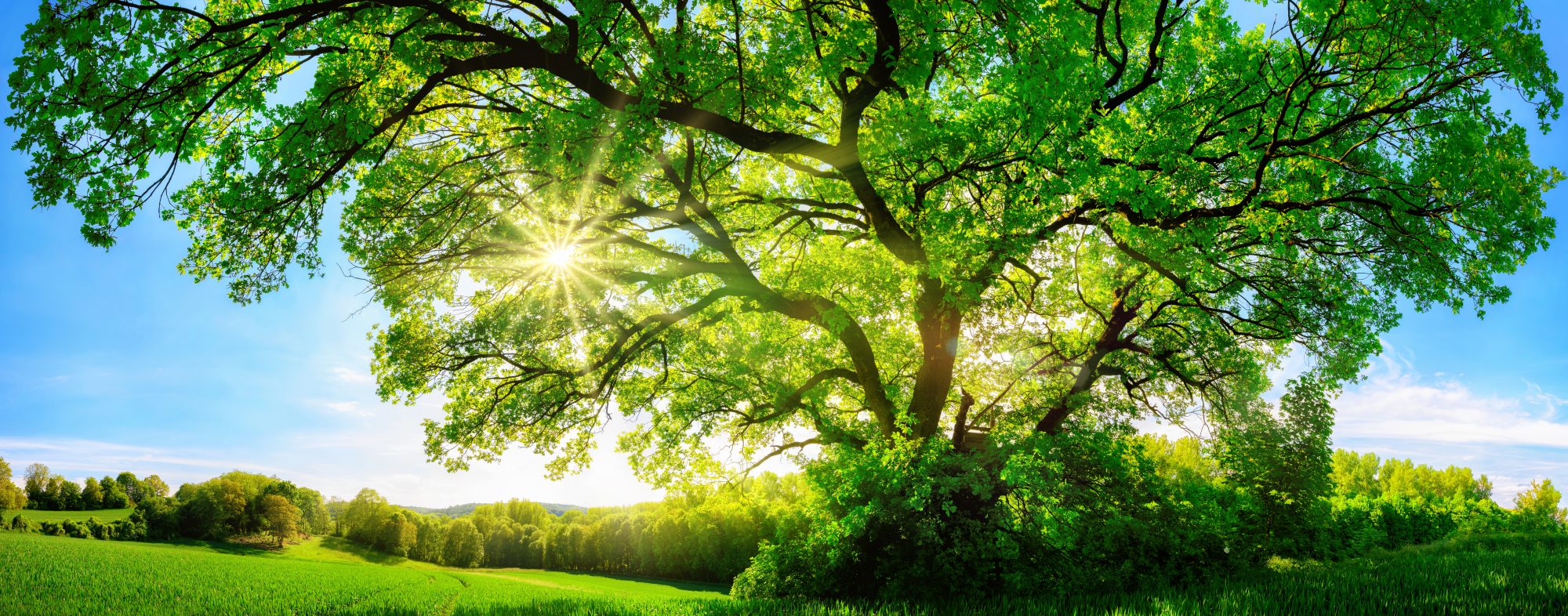With the position paper “Research priorities for sustainability science” the German Committee Future Earth (Deutsches Komitee für Nachhaltigkeitsforschung in Future Earth, DKN) highlights pertinent research gaps and suggests forthcoming fields of research in the field of sustainability science
We live in a world of multiple global crises. Unsustainable ways of living are leading to increasing loss of biodiversity, climate warming, health threats, social inequalities, and political instabilities, and ultimately, to great environmental and societal challenges. Urgent action is required to tackle these challenges. In order to support these actions, it is crucial to identify what research is needed.
“Research priorities for sustainability science” combines insights from global environmental change research and the environmental social sciences and humanities. The aim is to foster exchange and networking that can facilitate research that will sustainably transform society.

Concepts and trajectories
The paper covers different areas of sustainability science and identifies open research questions. It discusses conceptual approaches and goals of sustainability research and different trajectories regarding how to attain sustainable development. It also discusses challenges regarding spatial, temporal and functional scales as cross-cutting topics and treats interlinkages, synergies and trade-offs between extreme events, societal resilience, individual health and well-being, and social cohesion for designing pathways towards the Sustainable Development Goals. Also linkages between biodiversity, food production, human nutrition, dietary behaviour and health are discussed.
From this review of pertinent research topics that need to be tackled in the field of sustainability science, the following conclusions are drawn:
- Key sustainability concepts require constant reflection and probing and it must be asked to what extent they are conditioned by political motivation and cultural background.
- Questions of justice (transgenerational, transnational etc.), now considered to be a key challenge of transitions towards sustainability, must be debated.
- Sustainability sciences at large should engage in both evaluation of existing theories and the development of new concepts at the same time. This effort must be addressed by international interdisciplinary consortia engaging scientists from the natural sciences, the social sciences, and the humanities, arguing simultaneously from vantage points in different spatio-cultural settings.
- To find out how cross-scalar linkages can be addressed in empirical research and political action is still a key task of the sciences.
- In-depth interdisciplinary understanding of the socio-ecological processes underlying transitions from extreme events to crises and catastrophes and of the conditions of resilience is needed.
- Changes in food systems and dietary transformations are of crucial significance to address anthropogenic perturbations, steep biodiversity declines and global health.

Interdisciplinary and transdisciplinary
Research programmes and projects on these topics are necessarily interdisciplinary. They need to involve scientists from different epistemic communities. They also need to be transdisciplinary and participatory, involving decision-makers and civil society from the early phases to the reflection upon resulting theories.
With this paper, the DKN aims to promote the discussion on the manifold epistemological, theoretical, and methodological challenges of current sustainability research and, moreover, aims to motivate scientists to engage across disciplinary boundaries to actively shape the transformation towards a sustainable society.
The German Committee Future Earth (Deutsches Komitee für Nachhaltigkeitsforschung in Future Earth, DKN) is an independent scientific advisory body of the German Research Foundation (DFG) and national contact point and platform for developments and activities within the international research program for global sustainability “Future Earth” and the “World Climate Research Programme” (WCRP). The DKN fosters interdisciplinary, integrative sustainability research in both a national and international context and thus promotes cooperation between the disciplines. Since 2019, the DKN is chaired by Daniela Jacob and the DKN Secretariat is hosted at the Climate Service Center Germany (GERICS).
Authors
Sebastian Sonntag, sebastian.sonntag@hereon.de
Daniela Jacob, d.jacob@hereon.de
Please note: This is a commercial profile.
© 2019. This work is licensed under CC-BY-NC-ND.











